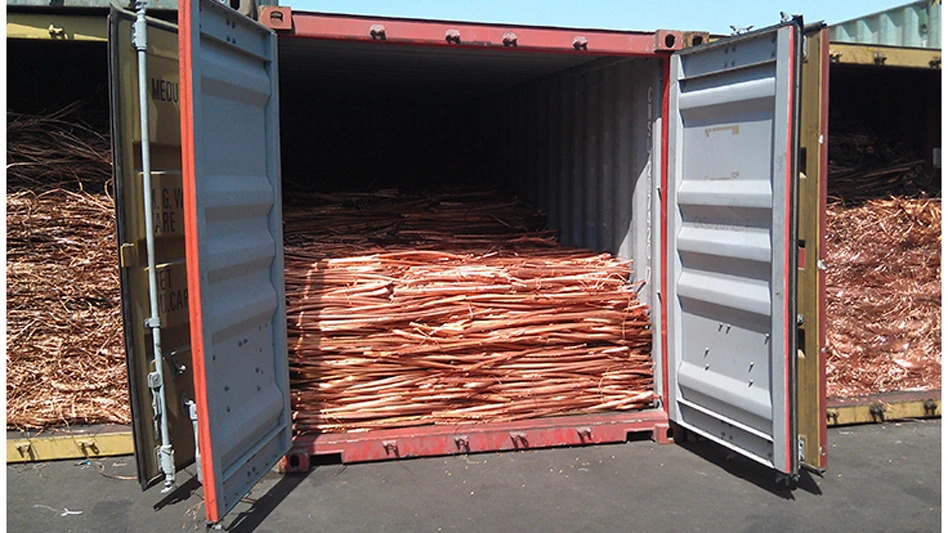
Recycling Today archives
The Brussels-based Bureau of International Recycling (BIR) has prepared and made available to its member organizations and companies a document that provides descriptions of and guidance for the looming European Union Waste Shipments Regulation (WSR) regimen for the cross-border trade of secondary commodities.
BIR labels the eight-page publication as a "Business Digest" and says it will be the first of more to follow intended to help member companies understand “complex regulations impacting the recycling industry.”
The creation and approval of the WSR by the EU Commission and Parliament has been met with disapproval from many European collectors, processors and traders of recyclable metals, paper and plastic.
Throughout the regulation’s text and in much press coverage about the WSR, the label “waste” has been applied to highly recyclable metallic and nonmetallic materials with an established value that long have been traded globally.
The regulation, however, treats traders and facilities in nations with developing economies as parties that must be protected from “waste” shipments rather than as buyers who use recycled metals or recovered paper as industrial feedstock.
In addition to creating a potentially restricted global market for EU secondary materials, recyclers fear the result will be that the recycling collection network in Europe shrinks in response to that smaller market.
“The European recycling industry has long warned the European Commission that demand for recycled materials within the EU remains insufficient to absorb the produced volumes,” writes Julia Ettinger of Brussels-based European Recycling Industries' Confederation (EuRIC) in an essay published by Recycling Today in early December.
“European recyclers rely on export markets to bridge this gap, especially because primary materials continue to be cheaper and more accessible, outcompeting recycled alternatives,” Ettinger adds.
The new "BIR Business Digest" in part explains how the WSR will be applied differently to shipments within the EU and to other Organization for Economic Cooperation and Development (OECD) countries and those to non-OECD countries such as India, China and the Association of Southeast Asian Nations (ASEAN) countries.
The document mentions several deadlines in 2025, 2026 and 2027 that will affect how and whether recyclers and brokers can keep their trading relationships intact as the WSR takes effect.
BIR calls the looming WSR “one of the most significant upcoming changes affecting global recycling operations," and says its members now have access to “clear, actionable guidance on the procedures required under the new rules” via the "Business Digest."
“This new service is part of BIR’s commitment to empowering its members with tools that make their decision-making processes easier,” says BIR President Susie Burrage of United Kingdom-based Recycled Products Ltd. “With clear guidance on navigating regulations like the WSR, we are helping members stay ahead of industry developments and ensuring they have the resources needed to thrive in an evolving landscape.”
BIR Director General Arnaud Brunet remarks, “We are adding the 'Business Digest' to the members area of our website, ensuring it is readily available as part of our expanding range of member publications. This is a critical step in supporting our members with timely and useful insights.”
More from our latest newsletter
- MBA Polymers UK offers ABS to global market
- Supersede launches marine-grade plywood replacement
- BASF collaborates to study mechanical plastic recycling
- Canada Plastics Pact releases 2023-24 Impact Report
- Sonoco selling thermoformed, flexible packaging business to Toppan for $1.8B
- Cyclyx announces new CEO
- Carpet recycling fees to rise in California
- Greyparrot reports 2024 recycling trends
- Light House embarks on construction site plastic scrap recycling effort
- Ecomaine targets multifamily recycling collection





